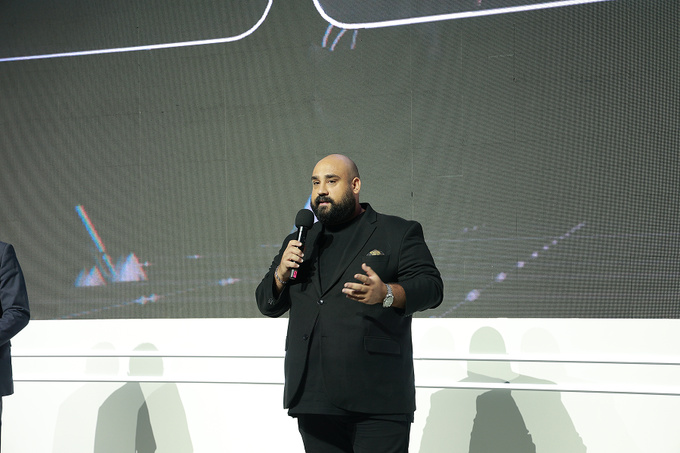“Central Asia should bet on DeepTech” — Yagiz Karadeniz, on the region’s strong engineering potential

Managing Partner Yagiz Karadeniz shares the firm’s 2025 achievements, new investments across Central Asia, and the launch of Uzbekistan’s first private international venture capital fund.
Yagiz Karadeniz, Istanbul city, Managing Partner DOMiNO Ventures, LinkedIn
At the beginning of 2025
We have increased our presence in Central Asia and the Caucasus. We have also been investing in Turkey for eight years, and now we are actively looking for Central Asian startups. So far, we have closed seven deals this year, with three more in the pipeline. We have made hard commitments to these three startups. Overall, our goal for this year is to close a total of 12 deals. You will also see new Central Asian startups joining our portfolio.
As Emergic VC, we do not wait for startups to apply — we actively seek them out. We find them on LinkedIn, through diaspora networks, and in many other channels. Our team researches startups everywhere. So far this year, we have reviewed around 7000 startups and conducted 800 first meetings.
This year, we generally invest in global, high-tech, and purely digital startups from day one. In terms of sectors, most of our investments have been in AI SaaS. We have also invested in two PharmaTech startups, which is a new area for our portfolio, but we are very excited about them — they are great companies. Additionally, we have invested in robotics this year. These three sectors are our main focus for 2025.
Geography and Trends
We are a Netherlands-based venture capital firm with offices in several countries, including Azerbaijan, Estonia, Georgia, Kazakhstan, Poland, Turkey, United Kingdom, Uzbekistan. Our main focus is on Turkey, Central Asia, and Eastern Europe.
We do not limit ourselves by country. Our focus is on Central Asian and diaspora founders, especially those with roots in Kazakhstan, Uzbekistan, Turkey, or Eastern Europe. If they operate in developed markets like the UK or the US, they are among our key investment targets.
Comparing Startup Ecosystems: Turkey and Central Asia
In general, Turkey and Central Asia are on a similar developmental path. Education levels are comparable, and English proficiency is strong in both regions, which is pretty important. The main difference lies in the maturity of the startup ecosystem.
In 2018, total investments in Turkey’s ecosystem were around $20-25 million, whereas now it has grown significantly. Today, Turkey has 12 Unicorns, including two decacorns, providing clear success stories. Central Asia, by contrast, has fewer such examples. The key challenge for Central Asian startups is to create their own success stories to build credibility and strengthen the ecosystem.
Over the past five years, all of Turkey’s unicorns have been global, with their headquarters based abroad. That is why in Central Asia, we encourage founders from the region — as well as from the Caucasus — to think globally from day one. We need to keep operational costs low, especially for teams and developers in our countries, because we have talented developers locally. But to sell our product, we have to enter developed markets. That is key for us.
The biggest difference is that in Turkey, we already have some successful stories. In Central Asia, this is not yet the case. In Turkey, the number is a bit low too, but in Central Asia, we need to create more success stories.
Strategy and Portfolio
In Central Asia, we focus mainly on early-stage startups, from Seed to Series A. Our typical ticket size ranges between $200 000 and $1 million.
We also have a clear long-term investment strategy: if a startup performs well, we aim to invest in at least three rounds, increasing our investment amount at each stage to support the company’s growth.
We have a diverse portfolio of startups, but I want to highlight one great example from Uzbekistan — TASS Vision. They raised $1,5 million, and their story is very inspiring.
The founder, Shakhzod Umirzakov, joined our regional accelerator program. After graduating, he remained persistent. For several months, we did not invest in his startup, yet he kept reaching out — calling every month and texting every week, always following up.
Instead of investing directly, we encouraged him to approach global investors. We helped connect him with international VCs — and those investors eventually invested in TASS Vision. This became a milestone: the first European venture capital investment in an Uzbek startup.
This story is a strong message to other founders. Too often, startups focus only on local investors or local corporations. But there is no real difference between a founder in Central Asia and one in the UK or the US — we have the same education, the same talent, the same mindset. The key is to be brave and go global. Shakhzod is a great example of that. Even with only 20-30% of his revenue coming from global markets, he still managed to raise from global investors — because he pushed hard and believed in his vision.
That is why I always tell founders in Central Asia: do not stay local, open yourself to the world. Your product is good enough to sell anywhere in developed markets.

About DOMiNO Uzbekistan Fund
We created a local private venture capital fund in Uzbekistan, and this is a major milestone for Central Asia. It is the first private and international venture capital fund in Uzbekistan.
The UzVC became an LP in our fund and invested in it. After that, we established a full fund structure in Uzbekistan. Normally, there is no existing legal framework for venture capital funds in the country, so we integrated our Dutch model — including all fund management and LP agreements — into the Uzbek structure. Essentially, we built the same framework we use in the Netherlands, step by step, within Uzbekistan.
The fund aims to invest $20 million in Central Asian startups, not only in Uzbek companies. It will be sector-agnostic, focusing on innovative startups from Seed to Series A stages. We are starting with an initial $10 million, and investments will begin soon.
Investor advice
I see there are many DeepTech startups in the region compared to other emerging markets. In Central Asia, we have good DeepTech startups and talented engineers. That is why there should be more focus not just on AI or SaaS startups, but also on DeepTech startups because of the strong engineering base.
The problem is that experienced white-collar professionals with 10-20 years of expertise often do not take action. They need to be braver. Being a startup founder is risky: founders may not take a salary for 12-16 months. Young founders are important, but we also need experienced domain experts to create startups. Technical talent is essential.
Do not limit yourself to local investors or regional markets. Do not stay stuck in one place. Go to global investors, reach out to global markets. Do not just test your product locally — test yourself and your startup globally.
